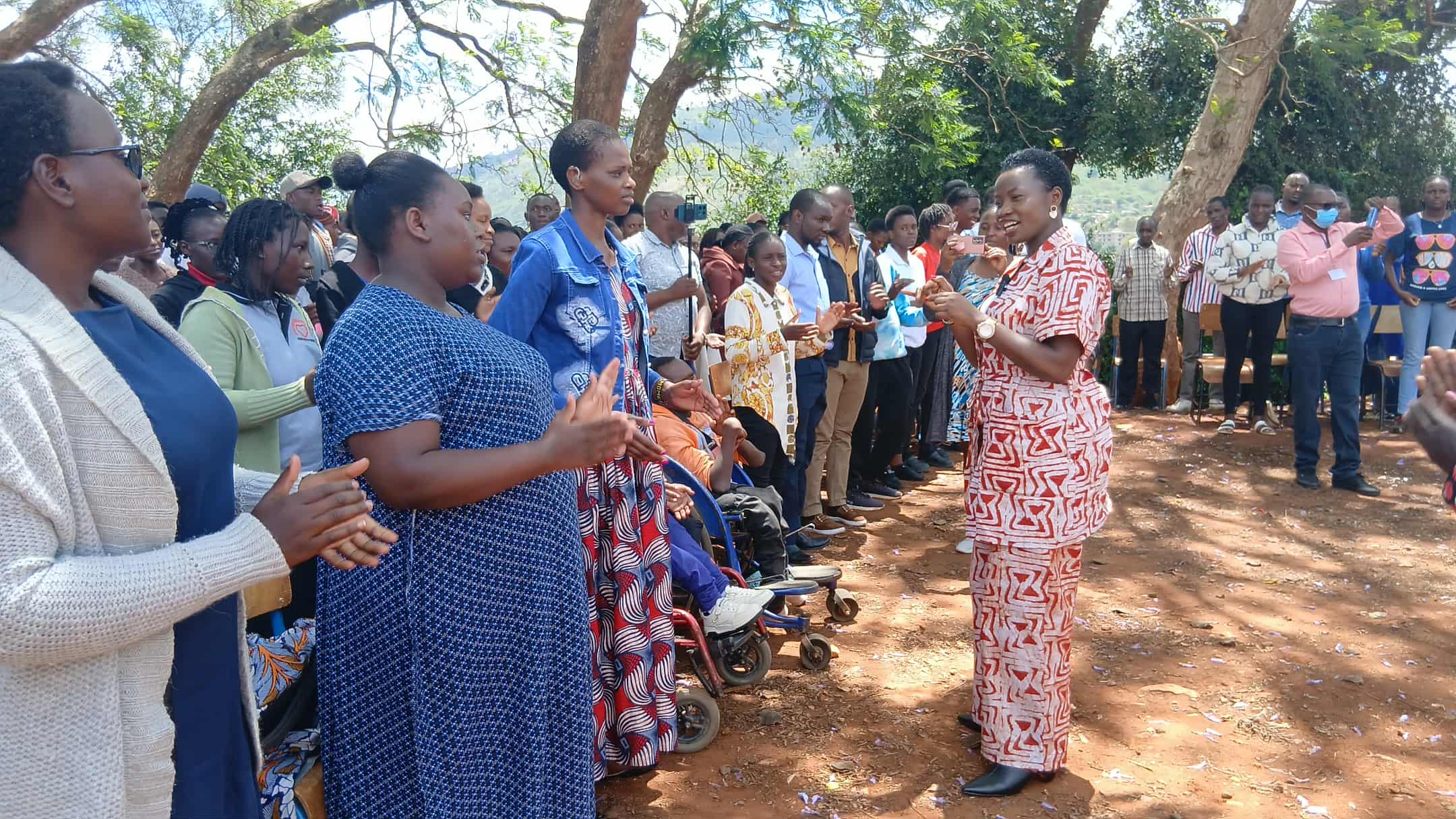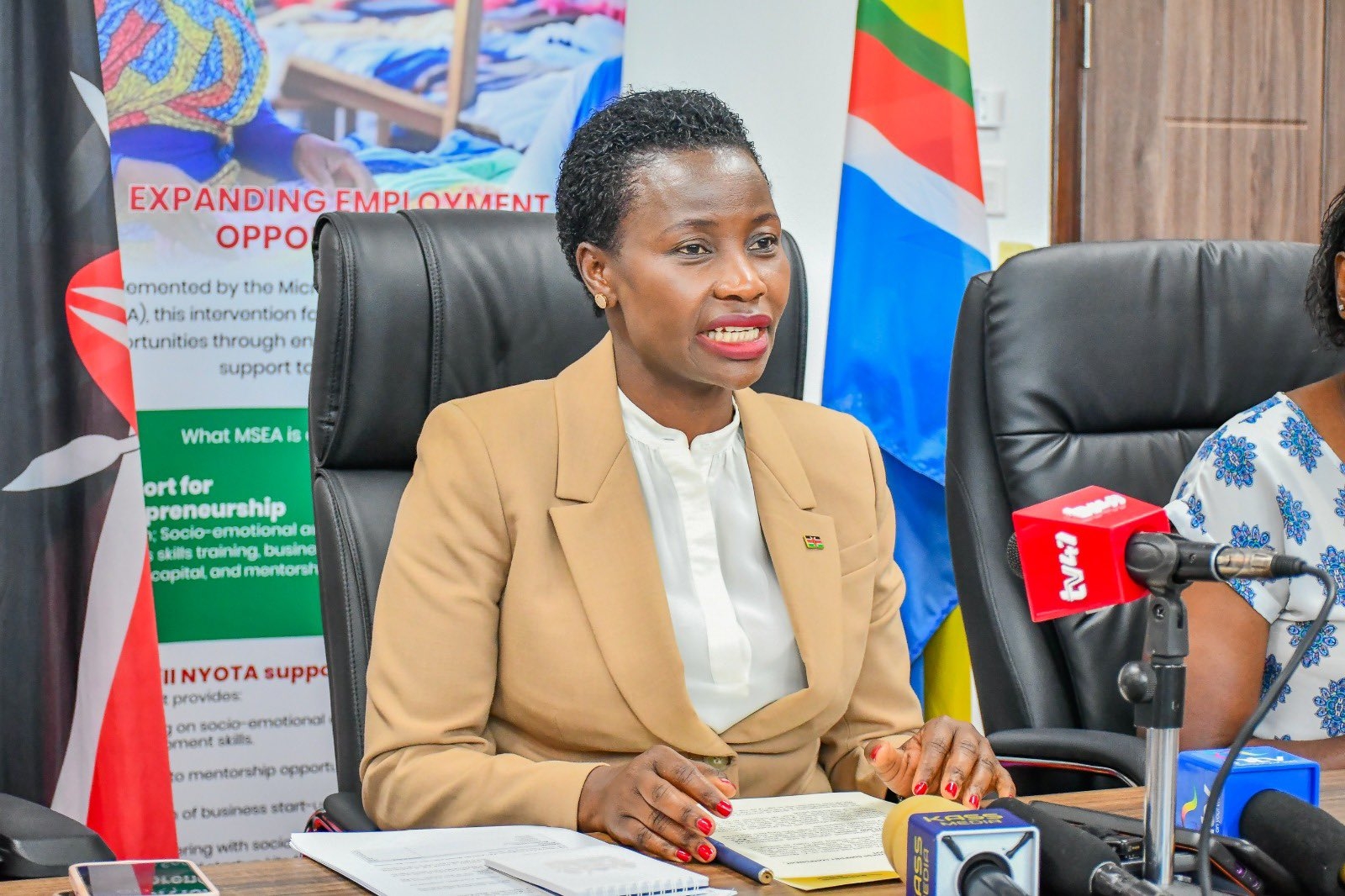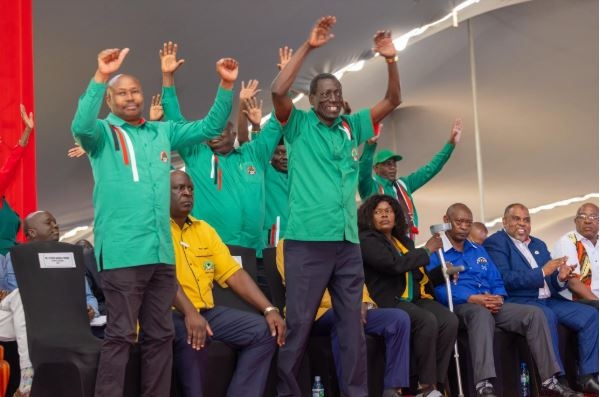
 MSMEs PS Susan Mang’eni speaking to NYOTA beneficiaries while supervising the ongoing training at Machakos Township primary and Junior School in Machakos county on November 16, 2025./GEORGE OWITI
MSMEs PS Susan Mang’eni speaking to NYOTA beneficiaries while supervising the ongoing training at Machakos Township primary and Junior School in Machakos county on November 16, 2025./GEORGE OWITIThe State Department for Micro, Small, and Medium Enterprises (MSMEs) Principal Secretary Susan Mang’eni has raised concerns over the youth turnout for the ongoing NYOTA training across the country.
Mang’eni observed that some of the youth selected for the National Youth Opportunities Towards Advancement programme have not turned up for the training, despite successfully applying for the startup funding.
She urged National Government Administration Officers, especially chiefs and their assistants in regions where the program is taking place, to help mobilize those who have not reported for training to do so for their own benefit.
“This programme aims to benefit at least 70 youth in each ward. We had targeted about 120 percent, which is about 84 youth in each ward,” Mang’eni said.
Mang’eni addressed the press shortly after supervising the ongoing training in Machakos Town constituency on Sunday. The NYOTA training for the constituency is being held at Machakos Township Primary School.
The programme has been rolled out in 25 counties: Kitui, Machakos, Makueni, Uasin Gishu, Trans Nzoia, West Pokot, Turkana, Baringo, Laikipia, Meru, Tharaka Nithi, Embu, Isiolo, Nakuru, Narok, Kajiado, Nandi, Siaya, Kisumu, Homa Bay, Migori, Kisii, Nyamira, Kericho and Bomet. This constitutes 151 constituencies and 754 wards.
She said they had extended the training at the centre until Tuesday to accommodate the youth who turned up on Sunday.
“We have also asked local leadership, led by area MP Caleb Mule and other leaders, to go back and mobilize those youths who were selected for the program but haven’t turned up for the training,” Mang’eni said.
“We want to bring in the support of the NGAO team to conduct door-to-door mobilization of those who were invited but were not able to come. This is critical. Any missing numbers—if you miss even one beneficiary—that’s Sh50,000 that won’t be utilized here,” she said.
The PS noted that the program is a good opportunity for the government to set up a supportive business ecosystem in every ward to stimulate economic growth.
NYOTA is a five-year initiative by President William Ruto’s administration, in partnership with the World Bank, aimed at empowering over 820,000 unemployed youth across all 47 counties.
According to the PS, 100,000 young entrepreneurs will receive Sh50,000 each as business grants to start or grow their businesses.
The NYOTA project’s Business Support Component and its countrywide rollout were officially launched at Mumias Sports Complex in Kakamega County on November 7.
The project targets empowering more than 100,000 vulnerable youth across all 1,450 wards in Kenya, with at least 70 beneficiaries per ward. It also aims to benefit 5,000 refugees in Kakuma and Dadaab refugee camps and an additional 5,000 from host communities.
The intake process for refugee beneficiaries in Kakuma and Dadaab is being finalized, after which training will be rolled out.
“For businesses to flourish, we also need to ease complex regulatory requirements. The concerns coming from these young people, even as they undergo training, include the cost of entry into the business space, such as business licenses,” Mang’eni said.
“We want to create a forum that brings together leaders from both national and county governments to look at how best we can create a conducive and enabling environment where young entrepreneurs can grow their businesses.”
Mang’eni added that the incubation process will run for four months, after which beneficiaries will join the larger SMEs ecosystem.
“They will have access to other available additional funding and opportunities,” she said.














